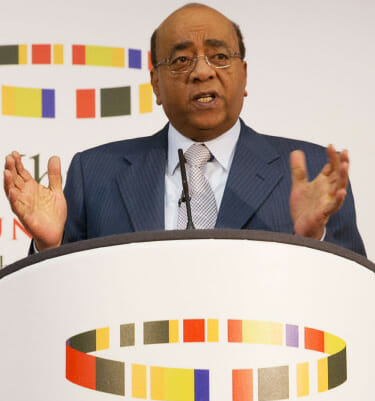
No sound governance in Africa without strong public services – Mo Ibrahim Foundation

London – The Mo Ibrahim Foundation has just released its 2018 Ibrahim Forum Report: Public Service in Africa. This Report will inform the discussion of the 2018 Ibrahim Forum that will take place in Kigali, Rwanda, on Saturday 28 April.
The Forum will focus on Public Service in Africa: its key relation to good governance and effective leadership, new challenges and current shortcomings, and the ways and means to strengthen it and make it appealing to the next generation.
Mo Ibrahim, Chair of the Mo Ibrahim Foundation, said “Public service is the pillar of governance. Without strong public services and committed public servants, there will be no efficient delivery of expected public goods and services, nor implementation of any commitment, however strongly voiced.”
The 2018 Report first looks at the demand addressed to African public services, pointing at growing expectations from citizens. New demands stem from the 21st century’s multiple challenges and Africa’s specific young and urbanising demography: solidarity, protection against various criminal threats, jobs, business enabling environment, culture, climate change mitigation, rural sector development.
These pile up on traditional demands – safety and security, health, education, justice – for which citizens’ dissatisfaction appears growing. An additional load is the multiplication of multilateral commitments: SDGs, COPs, AU’s 2063 Agenda.
Many actors could be responsible for all these, within the public sector – African Union, Regional communities, national governments, cities, or outside of it – private sector, multilateral donors. This calls for a careful assessment of who is best positioned to address these demands and who has to pay for the delivery.
The Report further assesses the current state of African public services and their key challenges, both from the job attractiveness side and from the delivery side. On average, African public services display a continent-wide lack of capacity. They remain a relatively small employer, at a cost higher than in other regions, with large country disparities.
In health, education and security, public supply is far from answering the demand. Partly to answer the exponential demand, partly to substitute failing public supply, a growing range of non-state actors have become key providers of public goods and services, to an extent that may have sometimes prevented national governments from owning public policies.
Public employees in Africa are on average better educated than in the private sector and are also twice older on average than the population they serve. Job motivation is mainly about job security rather than wages, mobility within or outside public service is almost non- existent, political dependence is strong, working equipment is scarce, corruption is among the highest at global level, “ghost public servants” populate many services, while too many of the best-trained choose to work abroad. Building public services in post-conflict settings, often from scratch, represents a specific challenge. But on a young continent whose ability to leap-frog has been often displayed, potential solutions and best practices exist: monetary and non-monetary incentives, internal and external mobility, capacity building, new technologies…
Concluding, the Report highlights the need to build a sound contract between citizens and public service providers. Trust being key to any sound deal, transparency and accountability need to be ensured, and commitments implemented.
On a continent where external financial flows are still equivalent to almost half of domestic tax revenues, where tax revenues only amount to less than 15% GDP on average, and where a majority of citizens are in favour of paying for their public services, strengthening tax collection is a key path to autonomy and ownership.












































